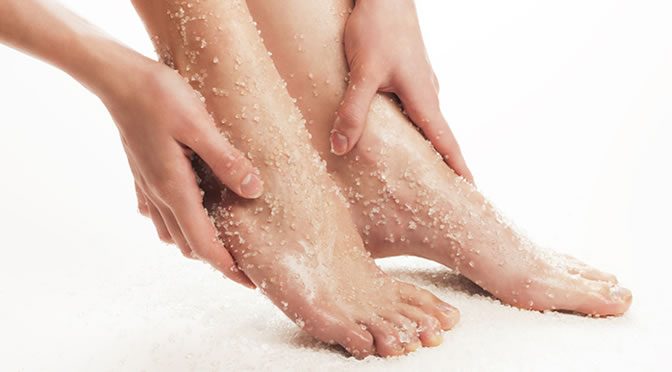Many people of different ages suffer from rough, dry skin, dry patches, eczema and psoriasis.
As winter comes the conditions gets worse, but there are ways and treatments to keep your dry skin healthy and ease any problems.
The skin is the part of body most exposed to the environment and germs so remember to maintain personal hygiene.
1. Your dry skin needs moisture
A very basic way to healthy skin is to retain the skin’s natural oils by following a daily moisturizing routine.
First, you need to know your skin type.
With your fingernail scratch a small area on your leg or arm, if a white mark appears then you have dry skin and it requires moisture.
For dry skin — especially the lips, feet and elbows — a thicker moisturiser is better.
Petroleum jelly (Vaseline) would be a good and cheap option since it protects the skin by reducing moisture loss.
However, some ranges of moisturisers contain both water and oil and so are cosmetically more attractive than petroleum jelly.
Moisturisers containing glycerine, lecithin, collagen, silicone, beeswax, lanolin, lauric acids and caprylic acids are effective ingredients to lock in the moisture and smooth the skin.
2. Treat your dry skin with coconut oil
Coconut oil is a popular topical treatment for conditions such as psoriasis and eczema and it is a good moisturizer for very dry skin.
It contains high levels of vitamin E that stops damage to the skin tissues and acts as an antioxidant and has an anti-aging effect.
Since coconut oil improves the lipid content and moisture, it can also help reduce stretch marks.
It is also useful for taming hair frizziness and removing make up.
It contains fatty acids such caprylic, capric and lauric acid which are used to soften the skin.
Moreover, lauric acid can kill harmful bacteria, fungi and viruses and so decrease skin infection and the irritation caused by it.
3. Get sun
It is often reported that exposure to the sun reduces atopic dermatitis (eczema) as it gets better during summer.
So try to take advantage of any daylight in the winter as much as possible.
Some studies have found that children and adults with eczema have low levels of vitamin D and are more prone to skin infections.
Exposure to daylight or specific wavelength therapy and vitamin D supplementation can improve the skin.
A study has shown that Vitamin D engages with known longevity genes and keeps you young and healthy.
4. Don’t forget your fish oil
Fish oil is essential for healthy skin function and appearance since it contains omega-3 and omega-6 fatty acids which are needed to build skin barriers to retain moisture and so stop the skin getting rough and dry.
Essential fatty acids in fish oil give you smoother skin, so adding oily fish to your diet or fish oil supplementation is an effective treatment.
Oily fish include sardines, anchovies, mackerel, salmon, herring, tuna and trout.
5. Drink more water
Water is a simple and effective solution to rehydrate your body.
Plain water includes tap water, water from a cooler, bottle or fountain.
People need different amounts of fluid since factors such as gender, age, physical activity, body mass and climates all have an impact on this.
It is difficult to give an absolute recommendation of water intake: even day by day we require different amounts.
However, the usual recommendation is 2.0 litres of water for women and 2.5 litres of water for men on a daily basis.
Remember that drinking water has many advantages and is very useful for those who want to reduce their calorie intake and control their weight in a healthy way.
A study found an increase in drinking of plain water even only by 1 percent can reduce the level of sugar, fat, sodium and total daily calorie intake.
6. Don’t take long baths or showers
Long hot baths or showers remove the oil from the outermost layer of the skin that keeps the skin waterproof, protects against the cold environment, bacteria and fungi.
So don’t make it longer than 10 minutes daily.
To keep the humidity in the room, leave the bathroom door closed, use lukewarm water instead of hot showers and apply a moisturizer while your skin is towel dried but still damp.
7. Use a humidifier in your bedroom
Running a humidifier at night brings moisture back into the air so helps your skin and hair to absorb the moisture.
A study shows that when humidity is increased to about 43%, the flu virus is deactivated.
So setting the humidity level in the correct range not only makes the skin softer but also cuts the risk of infections.
8. Less soap and household chemicals
Try to avoid antibacterial washes, deodorant bars, body washes and skin care products with alcohol as a main ingredient.
If you see alcohol is listed among the first six ingredients on the product label, this means it will aggravate your skin and cause dryness in long term use.
An alternative is to use lukewarm water with plain soap and fragrance free body wash.
Reduce the use of fabric softeners and use fragrance-free laundry detergents as a study reveals many ingredients of consumer products have negative impacts on the human health.
Skin image from Shutterstock
